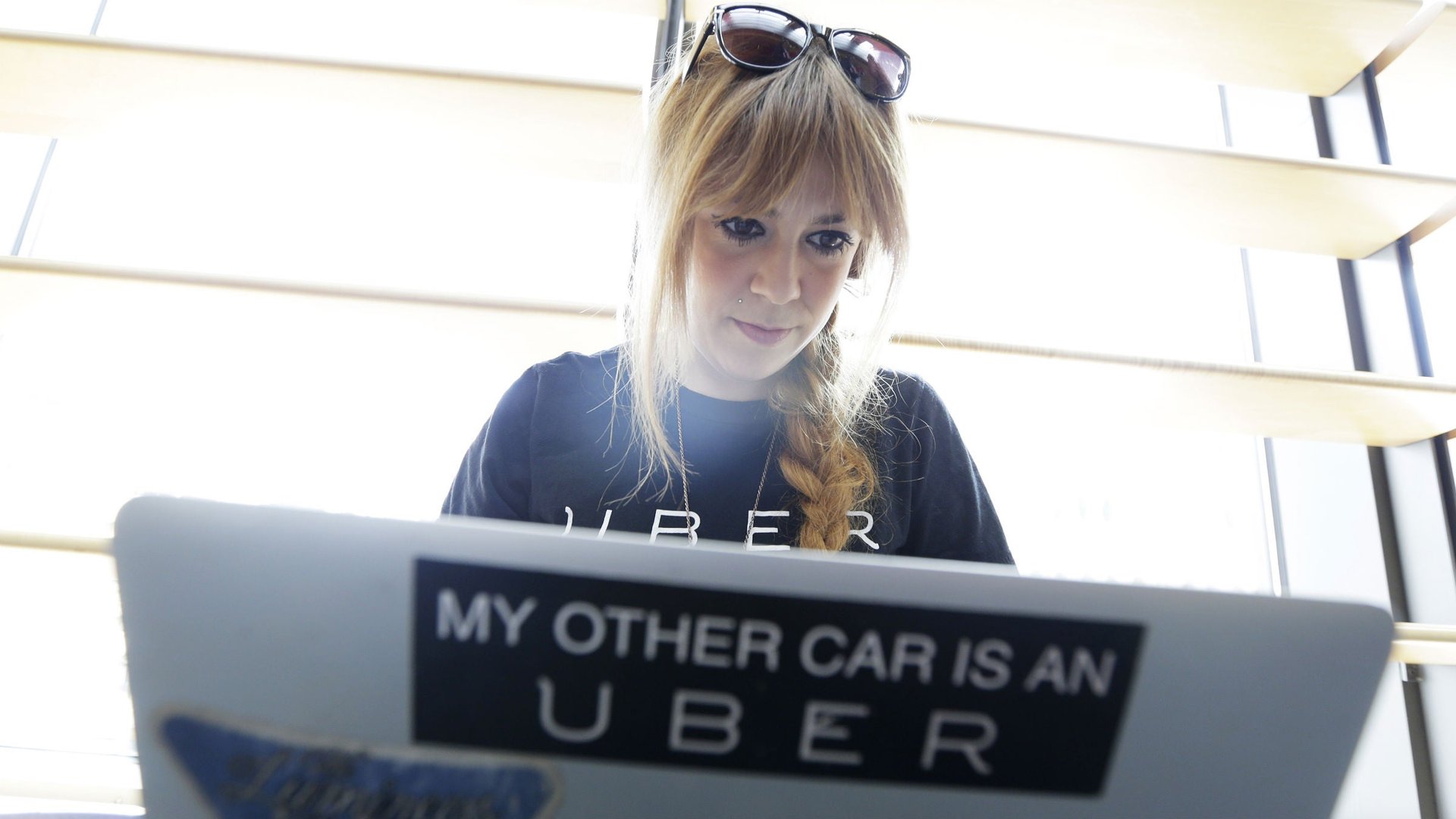Uber is upending that old motto about the customer always being right
I had a rude shock recently when trying to hail an Uber cab. It showed up alright, but only barely. The driver told me he almost didn’t pick me up “because of your low score.”


I had a rude shock recently when trying to hail an Uber cab. It showed up alright, but only barely. The driver told me he almost didn’t pick me up “because of your low score.”
Low score? For what?!
I knew passengers rated drivers, but I had no idea Uber rated its passengers too. Call me old fashioned.
In case you don’t live in one of the 100 cities where it’s available, Uber is an app-based car service that connects riders with licensed and available drivers in their area. After reaching the destination, you are asked by the app to rate your driver from 1-5 stars. And the driver does the same to you. Other e-hailing apps like Hailo and Lyft have similar passenger ratings systems.
My bad ratings shock came on my third and final ride of a Saturday several months ago.
That was my first day using Uber. I remember the first two rides of the day distinctly: I wasn’t rude, I didn’t hit anyone or vomit on the back seat. But maybe the first driver didn’t appreciate when I corrected him as he headed toward Clinton Street, not Clinton Avenue, as requested?
Or maybe the bad rating came from the chatty second driver. When I smiled and put on my headphones, explaining I needed to listen to something for work, he admonished me, “Don’t give me a bad rating just because you don’t feel like talking!”
Banks, of course, have been rating us for decades but thanks to the Fair Credit Reporting Act, passed in 1970, you can see your credit score and fight back if you think there’s an error.
Never mind my hurt feelings from riding Uber; unregulated and privy to personal data galore, businesses are formulating new consumer scores extrapolated from everything we pump out from our phones, search inquiries, and homes. We are being held to opaque and subjective standards and we don’t even know it.
Robert Gellman, an advisor to companies and the government on data privacy and fairness, told me we should all be wondering, “Now that everybody is scoring everybody all the time on all kinds of characteristics, do we all have to live according to a certain model in order to be treated properly in this economy? Is that the future that we face?”
The White House’s is waking up to that future. In its “Big Data Report,” out last week, it calls for new privacy laws to combat potential discrimination by data:
“The detailed personal profiles held about many consumers, combined with automated, algorithm-driven decision-making, could lead—intentionally or inadvertently—to discriminatory outcomes or what some are already calling ‘digital redlining.’”
We investigate more in the latest episode of New Tech City, my podcast on New York Public Radio.
On a more human note, I have to wonder if my Uber ride is an indication of how we may need to behave in the future. Chipper, oh-so-polite, and smiles all around? 5 stars! Introspective or busy today, 1 star. No more rides for you.
When asked for an interview, Uber declined but pointed me to a new blog post on its site, saying: “Drivers shouldn’t have to deal with aggressive, violent, or disrespectful riders.”
Yes, we should be glad that these ratings system encourage civil discourse (unlike online reader comments). But I’d like to ask those two drivers: would they have given me a higher rating if they’d known I wasn’t feeling well that day? Or mourning a loss? Or maybe you just didn’t like a woman who corrected you and didn’t laugh at your jokes.
Maybe it’s verboten to say this in the era of the Reputation Economy, but I don’t believe a minor irritation or, dare I say, bias should be recorded for all time, even in a form so seemingly trivial as an Uber passenger rating. No one should have to charm you, dear driver, to get 5 stars and ensure another driver will pick her up the next time she’s stuck trying to get home at midnight and the subway isn’t running.
Sometimes you just want to get from Point A to Point B.